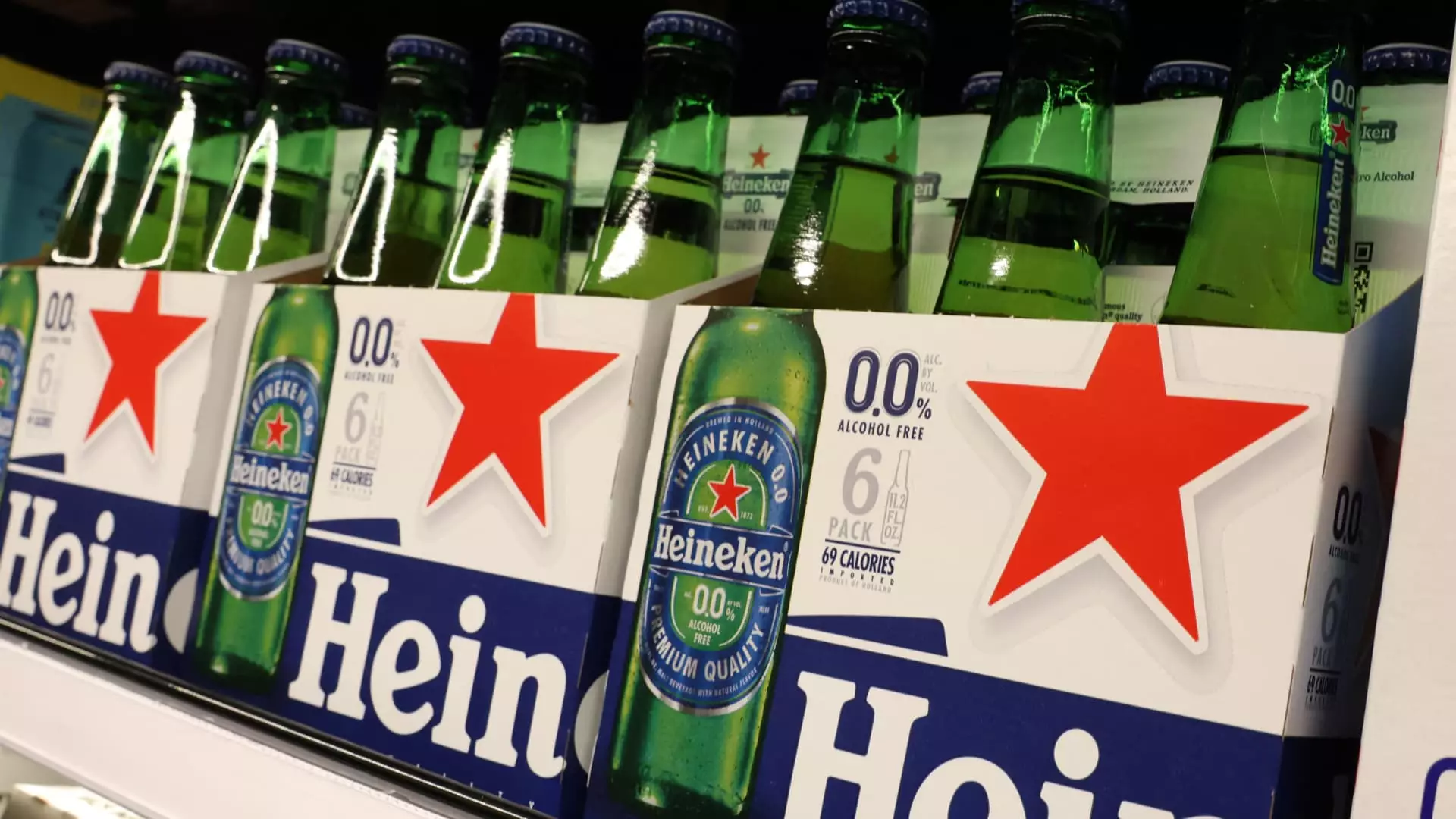Heineken, a stalwart in the global beer market, has found itself navigating treacherous waters that have turned what seemed like temporary tariff concerns into a full-fledged crisis. Earlier this year, the Dutch brewer appeared unfazed by trade tensions, suggesting that its business model could withstand any onslaught of tariffs. However, with the release of its recent earnings report, it has now become painfully clear that the company may have underestimated the weight of evolving international trade dynamics. The mention of rising tariffs specifically targeting canned beer and aluminum imports is not mere corporate jargon; it’s a clarion call to investors that the anticipated stability is anything but guaranteed.
Tariffs: The Unwanted Disruptor
The implications of these tariffs extend far beyond basic economics. When a global entity like Heineken indicates that it may need to adjust its spending and investment strategies due to potential tariff hits, it raises questions about consumer prices and market accessibility. The 25% duty on imported canned beer and empty aluminum cans, originally enacted amid mixed sentiments, stands as a grim testament to the unpredictable nature of contemporary international trade. This isn’t just a matter of corporate strategy but a potential alteration in the consumer landscape as businesses like Heineken grapple with decisions that could lead to either price increases or cuts in quality.
A Shift in the Narrative
In a striking contrast to earlier reassurances, CEO Dolf van den Brink’s recent comments about an anticipated dip in beer sales reflect a sobering realization. The challenges of inflation and weakening consumer sentiment, coupled with currency fluctuations, form an ominous trio of threats. This departure from his February proclamations—where he claimed that proposed tariffs were “relatively manageable”—indicates not only the volatility of trade agreements but also how swiftly the narrative can change in the business realm. The brewing industry, described as one that is “capital intensive and very local,” now faces the uncomfortable scrutiny of how international tariffs can swiftly upend local markets.
A Cautionary Tale for Industry Giants
It’s noteworthy to mention that Heineken is not standing alone in this turbulent sea of trade uncertainties. Competitors such as AB InBev initially downplayed tariff threats, reflecting a collective sense of confidence. However, the growing unease among industry giants poses serious concerns about the broader implications for market competition and consumer choice. If leading brands like Constellation Brands begin to revise their long-term forecasts due to tariff impacts, it signals a shift in the consensus about the risks inherent in global trade norms.
Future of the Beer Industry: A Pivotal Moment
As Heineken faces potential disruptions, one thing is clear: the resilience of the beer industry will be put to the test. Investors and consumers alike must brace for a future that could reshape the market landscape as tariffs linger ominously overhead. The decisions made today will reverberate as companies recalibrate their strategies, possibly changing the face of the beer industry forever. This is an inflection point that could determine not only the profitability of brewing giants but also the future of craft breweries and local microbrewers trying to find their place in a less predictable economic environment. In an age where every business maneuver counts, the stakes have never been higher.

